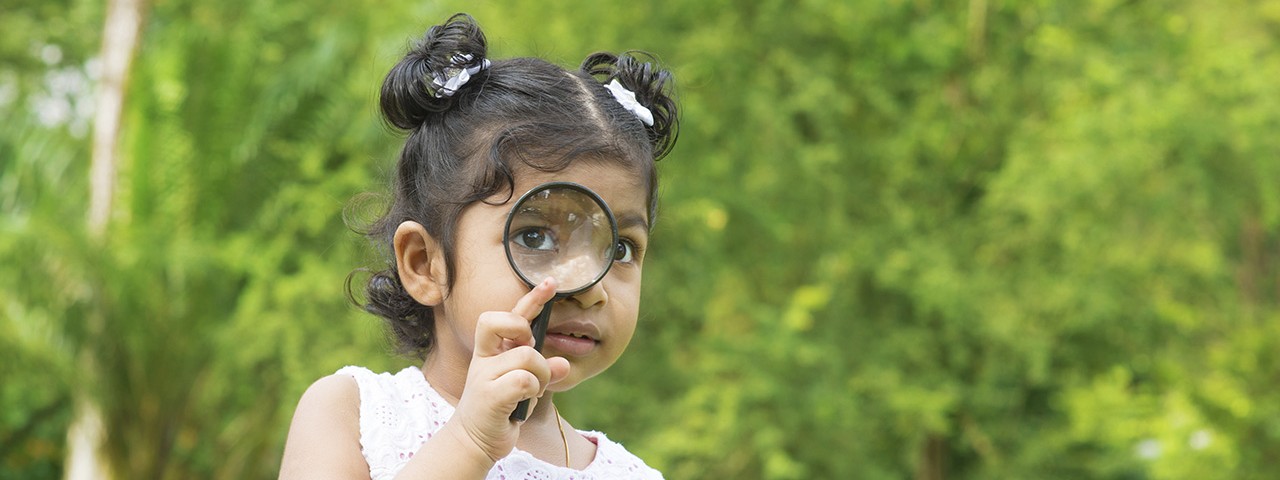What Drives Kids' Curiosity
- Tweet

Curiosity is school-fuel for kids.
Children with high levels of curiosity are motivated to learn or accomplish something new for the reward of simply having mastered it. Science calls this hunger to learn and do mastery motivation. It can be a powerful force, driving young people to achieve new things without the need for external rewards.
Curiosity is school-fuel for kids! Tweet this!Wired for It
Humans have truly special brains, wired to learn from birth. We’re a naturally curious species. Fostering a strong sense of mastery motivation in our children is less about making them become curious and more about helping them remain curious.
In very young kids, a thirsty curiosity leads to early developmental milestones, like language development and behavior mimicking. As they age and enter formal school, mastery motivation makes them fearless in academics, willing to tackle new subjects without second guessing their abilities.
Our role as parents and caregivers is to consistently provide a steady supply of the nourishment needed to keep the curiosity fed. But it isn’t only about providing them access to new experiences and ideas. We also have to give them space to explore on their own terms and at their own pace.
Space to Learn
A healthy sense of mastery motivation grows in part through trying and failing at complex tasks. For toddlers, this may be getting into a shirt with head and arms in all the right holes. For elementary age children, perhaps it’s long division. At a certain point, we’re actually helping our children more by letting them struggle into garments, or repeatedly redo their arithmetic, rather than swooping in to manage the roadblock for them.
Providing gentle, positive feedback, while supporting their autonomy by giving them space, is a great way to help guide our children through the learning process of a new task. For very young children, knowing their caregivers are there with support makes them more willing to explore their world and discover new experiences. The effects of this support materialize early when healthy attachment forms between babies and their caregivers, and scientists have observed that attachment affects curiosity even as early as infancy.
Curiosity also thrives within families that hold openness and learning in high regard, making the quest for new knowledge and fresh ideas a part of the family culture. Families that follow this path find learning experiences everywhere, from special events like vacations and local festivals to more mundane tasks like making a new recipe for dinner.
Putting on the Brakes
Standing by as our children repeatedly struggle with a new skill can be tough. We live busy, active lives and sometimes it’s just time to walk out the door. That’s fine; sometimes we have to swoop in and get those shoes on the right feet. The fires of mastery motivation are stoked throughout childhood, so parents and caregivers who create an environment that promotes curiosity shouldn’t worry about the occasional need to step in and help for practical reasons.
What we don’t want to do is plant seeds of doubt that get in the way of fearless life-learning. It might seem like we’re saving our children from stress and frustration when we take over the science project or correct their math, but what we’re actually doing is telling them they can’t do it. When children get this message consistently, they begin to believe it. Over time, it may mean shutting off doors to new experiences and missing opportunities to follow new paths.
We also have to be careful with the language we use. It might seem like a harmless joke to make a comment about how clumsily our children are swinging a tee-ball bat or how sloppy their marker doodles are, but we might actually be convincing the next Albert Pujols or Frieda Kahlo to give up before they had a chance to find the magic.
When parents properly cultivate their child’s natural curiosity with plenty of learning opportunities and positive feedback, they help her develop a love of learning for learning’s sake that will serve her well throughout school and life.
